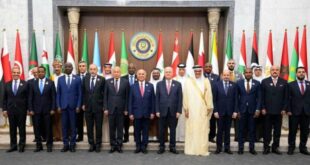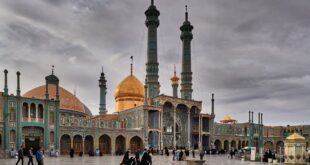A senior European Union official says Iran is ready to resume suspended nuclear talks as soon early September, Western news agencies are reporting.
AFP and the dpa news agencies reported on August 7 that representatives of the country have given assurances in recent days that the talks will be resumed in Vienna, according to the senior EU official, who spoke on condition of anonymity.
The official said the EU’s negotiator on the matter, Enrique Mora, attended the swearing-in of new Iranian President Ebrahim Raisi in Tehran last week, speaking there with the Iranian official designated to lead the talks, Hossein Amir-Abdollahian.
The EU official said Amir-Abdollahian is slated to be the new foreign minister in Raisi’s cabinet, but the move has not yet been announced.
The Iranians said they want to get back to the negotiating table “as soon as possible — not just for talks but to achieve an agreement. They want a success,” the EU official said.
The United States urged Iran on August 5 to return to talks on reviving the 2015 nuclear deal after the new hard-line Iranian president said he would seek a diplomatic way to end sanctions.
“We urge Iran to return to the negotiations soon,” U.S. State Department spokesman Ned Price said at a news briefing. “For us, this is an urgent priority.”
Raisi called for a lifting of the sanctions during his inauguration speech earlier on August 5.
Raisi is expected to consolidate the power of ultraconservatives during his four-year term.
The EU official told the news agencies that it was not clear whether the nuclear talks would remain under the responsibility of the Iranian Foreign Ministry or be taken over by Iran’s National Security Council or another body.
The nuclear deal was signed by Hassan Rohani, the relatively moderate Iranian leader who left after his allowed two terms.
It was signed by the United States, France, Britain, Germany, Russia and China and set an easing of sanctions against Tehran in return for curbs on Iran’s nuclear program.
U.S. President Donald Trump pulled out of the deal in 2018 and reimposed crippling financial sanctions..
Trump at the time said Iran was not adhering to the spirit of the deal, accusing it of attempting to build nuclear weapons and of supporting extremist activity in the region. Iran denies the charges.
After Washington pulled out of the deal, Tehran responded by walking back measures it had agreed to under the accord.
“The EU would like Iran to freeze the nuclear activities,” the EU official said, but admitted that Moscow and Beijing did not back its language on that position.
Negotiators have been meeting since April in Vienna to seek a way to bring both sides back into full compliance, with the last round taking place on June 20.
But complicating the matter, tensions have risen recently between Iran and the West, notably with an attack by drones last week on an Israeli-linked tanker off Oman that killed a Briton and a Romanian on board.
The Group of Seven (G7) leading industrialized nations — the United States, Britain, Canada, France, Germany, Italy, and Japan — blamed the attack on Iran. Tehran denies the accusation.
 Eurasia Press & News
Eurasia Press & News



